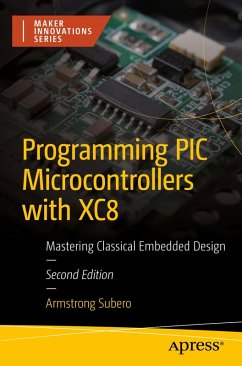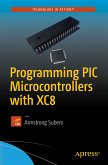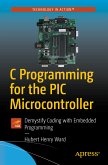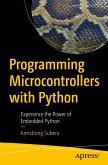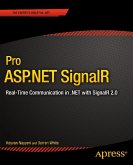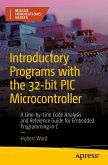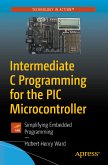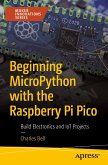Written for those who want more than an Arduino, but less than the more complex microcontrollers on the market, this new edition is fully updated and covers embedded design principles such as foreground-background loops and event driven programming. You'll learn how to interface with things like Motors, PID loop control and writing a browser-based monitoring system! This book is heavy on code, schematics, and images and focuses less on the theoretical aspects of using microcontrollers.
Coverage includes writing a display driver, using the DAC for a multitude of waveform generation techniques, and building 8-bit IoT systems, real time telemetry, a countdown timer, and new peripherals. These topics are important if you want to learn more about PIC microcontroller devices as a whole. You'll also see the advantage that MPLAB X offers by running on Windows, Mac and Linux environments. You don't need to be a command line expert to work with PIC microcontrollers, so you can focus less on setting up your environment and more on your application.
If you want to move beyond the Arduino, Programming PIC Microcontrollers with XC8 is your complete guide to understanding modern PIC microcontrollers.
Dieser Download kann aus rechtlichen Gründen nur mit Rechnungsadresse in A, B, BG, CY, CZ, D, DK, EW, E, FIN, F, GR, HR, H, IRL, I, LT, L, LR, M, NL, PL, P, R, S, SLO, SK ausgeliefert werden.

